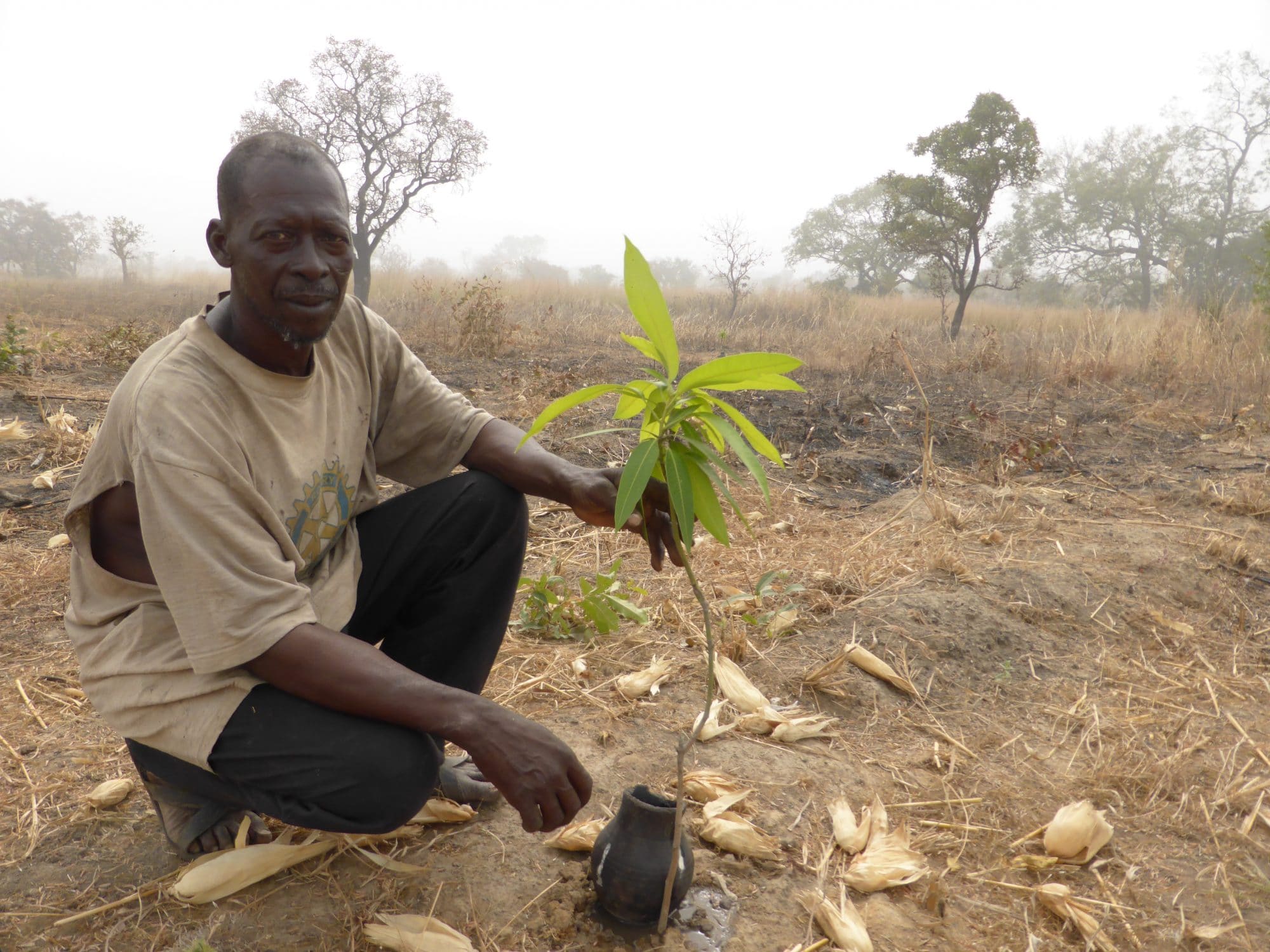When Bushfires Destroy Livelihoods
No rain has fallen for months in the northern part of Ghana. The land is dry and the air smells of smoke, as out-of-control bushfires rage across farmland burning away crops.
Gampie Tanko is a smallholder farmer in Kanyini, a community in northwestern Ghana, where he lives with his wife and three children.
Gampie is a mango farmer; he sells the fruit in the market for a profit, but the mangos also provide food for his family. But now, bushfires have destroyed his plantations. Although it has been two weeks since the fire swept through his land, the ground is still black and the smell of smoke lingers in the air.
“The weather conditions here have grown worse. In the past, the grass here would still be green and wet at this time. Now it is very dry, and I fear this will continue and we are going to see more droughts and warmer weather in the future,” says Gampie Tanko.
When the dry season began, Gampie started to weed and removed dry grass around every mango tree in order to create fire-belts. But he got sick and managed to make fire-belts around only half of the trees. Later that month a distant bushfire got out-of-control and quickly spread to Gampie’s new mango plantation.
“I have worked for nothing. I have wasted a lot of money and hard work for nothing. People know that the fires damage trees, crops and soil fertility, but they still continue to set bush and fields on fire,” said Gampie.
As the climate changes and temperatures keep rising, bushfires become more and more frequent in northern Ghana and the conditions of small-scale farmers become increasingly severe. CARE’s “Adaptation Learning Programme,” which helps vulnerable farmers adapt to changing climatic conditions, has installed, together with Ghana’s Meteorological Institute, about 50 rain gauges in different communities in northern Ghana, including in Kanyini.
Gampie Tanko is now one of CARE’s volunteers who are responsible for monitoring the rain gauge every day during the rainy season, and sending the information on the amount of rainfall to the Ghana Meteorological Institute. This enables the Institute to make more precise and location-specific weather forecasts, which helps farmers to be better prepared for extreme weather. With CARE’s support, communities are learning about the effects of climate change, and getting advice on what they can do to adjust their farming practices.
In the future, Gampie plans to ensure that there are proper fire-belts around each tree in his plantation, and he will also try to make one big fire-belt on the entire plantation.

